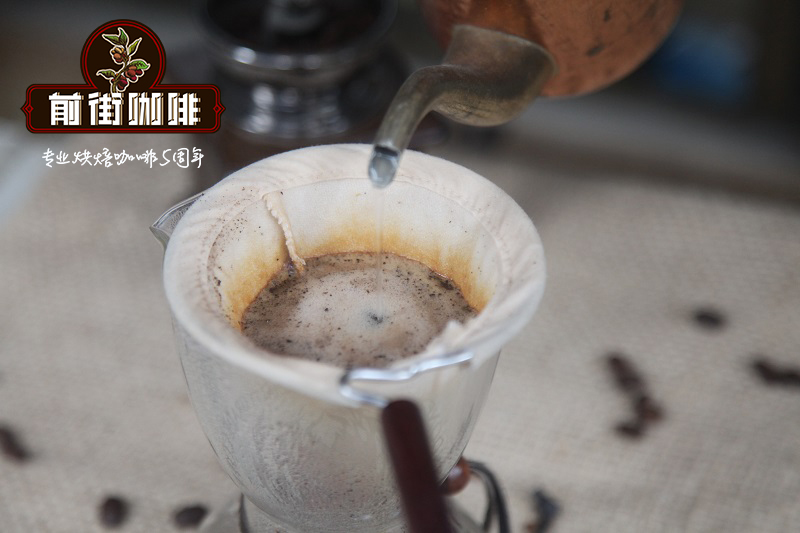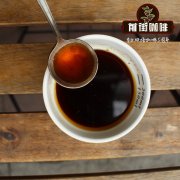The Historical Story of Brazilian Coffee suggestions on the characteristics of hand-flavored Flavor of Brazilian Coffee beans

、
Professional coffee knowledge exchange more coffee bean information please follow the coffee workshop (Wechat official account cafe_style)
Brazil is vividly compared to the "giant" and "monarch" of the coffee world. There are about 3.97 billion coffee trees there, and small farmers now grow 75% of the country's coffee beans. The number of coffee producers in Brazil is twice or even five times that of Colombia, the third largest coffee producer in the world. Unlike in the past, Brazil's economy is less dependent on coffee, which accounts for only 8% of GDP. Before World War II, Brazil accounted for 50% or more of the world's coffee production, now close to 30%, but the country's impact on the world coffee, especially on coffee prices, is significant. For example, two frosts in 1975 and 1994 caused a sharp rise in global coffee prices.
Since the introduction of coffee trees from French Guiana in 1720, coffee production has gradually become a science. Before 1990, the Brazilian government carried out strict monitoring of the coffee industry, with both strict intervention and price protection measures, and the state has been implementing a minimum price protection policy for farmers, resulting in coffee overproduction. Before World War II, the remaining stock reached 78 million bags, which had to be burned by fire or destroyed in the water. Since the opening of the free market since 1990, the original Brazilian Coffee Authority has been replaced by the National Economic Association, the country's non-investment administrative body, which pursues a policy of non-interference and allows producers to negotiate directly with exporters. The business activities of exporters are regulated by government legislation, and the relevant departments register legitimate exporters. Because of the wide variety of Brazilian coffee, we can't just use the word "Brazilian coffee" to include it.
It is suggested that the filter cup V60, the grinding degree of Fuji 4, the water temperature 88 °, the ratio of powder to water 1: 14, 15 grams of powder, 225 grams of water, the total cooking time is 2 minutes.
Important Notice :
前街咖啡 FrontStreet Coffee has moved to new addredd:
FrontStreet Coffee Address: 315,Donghua East Road,GuangZhou
Tel:020 38364473
- Prev

Columbia boutique coffee beans manor beans-washed by Bourbon from Bishop Del Obispo Mountain Farm
Professional coffee knowledge exchange more coffee bean information please follow the coffee workshop (Wechat official account cafe_style) Columbia boutique coffee bean manor beans-Bishop Del Obispo Mountain Farm bourbon washing treatment of the flavor and taste? Colombia is currently the third largest coffee producer in the world, after Brazil and Vietnam. It first grew commercial beans in the 1830s and in the 20th century.
- Next

Brazilian Sandoz Coffee introduces Brazilian Coffee Flavor introduction of Brazilian Coffee hand pulping parameters
Professional coffee knowledge exchange more coffee bean information Please follow the coffee workshop (Wechat official account cafe_style) speaking of Brazil Santos, in addition to the football team, I believe many people will think of coffee. Santos is a port in southeastern Brazil. In the past, the name of the port was printed on the export of coffee (generic coffee) from different provinces.
Related
- Detailed explanation of Jadeite planting Land in Panamanian Jadeite Manor introduction to the grading system of Jadeite competitive bidding, Red bid, Green bid and Rose Summer
- Story of Coffee planting in Brenka region of Costa Rica Stonehenge Manor anaerobic heavy honey treatment of flavor mouth
- What's on the barrel of Blue Mountain Coffee beans?
- Can American coffee also pull flowers? How to use hot American style to pull out a good-looking pattern?
- Can you make a cold extract with coffee beans? What is the right proportion for cold-extracted coffee formula?
- Indonesian PWN Gold Mandrine Coffee Origin Features Flavor How to Chong? Mandolin coffee is American.
- A brief introduction to the flavor characteristics of Brazilian yellow bourbon coffee beans
- What is the effect of different water quality on the flavor of cold-extracted coffee? What kind of water is best for brewing coffee?
- Why do you think of Rose Summer whenever you mention Panamanian coffee?
- Introduction to the characteristics of authentic blue mountain coffee bean producing areas? What is the CIB Coffee Authority in Jamaica?

